'Vietnam should train teachers in 5 years'
That was the opinion of experts in the field of teacher training at a recent conference. Why?
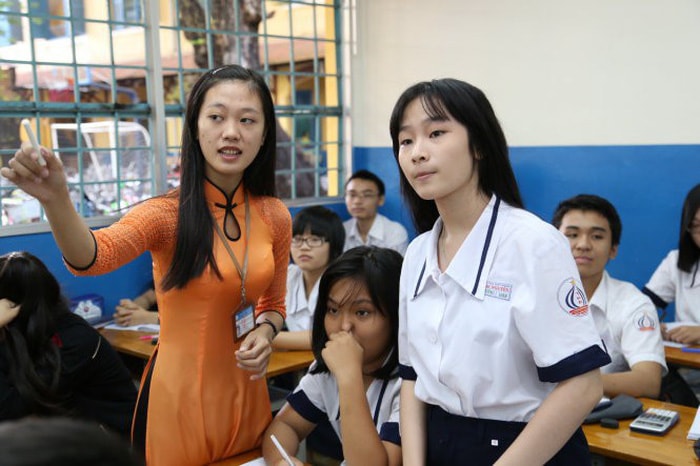 |
| Student Nguyen Hoang Phuong Thao (Physics Pedagogy major, Saigon University) practices teaching Physics to 10A8 class students at Tran Khai Nguyen High School, District 5, Ho Chi Minh City. Photo: Nhu Hung |
According to experts, there are currently two models of teacher training: parallel and continuous. Parallel is training scientific knowledge and pedagogical skills at the same time. Continuous is requiring student teachers to complete a science training program before participating in a pedagogical training program.
Vietnam is training teachers in parallel model. Countries with developed education like America, France, Japan... train teachers in consecutive model.
5 years, 2 phases
According to experts, teacher training in Vietnam focuses too much on professional knowledge. There is very little knowledge of professional skills and general education. Meanwhile, the lack of common standards for scientific and professional knowledge is the reason why teachers graduating from school do not meet practical requirements.
Ms. Nguyen Thi Ha - Ha Tinh University - said that in the current teacher training program, the time spent on professional skills training is very modest. The pedagogical part for the major is only 8-15 credits, accounting for about 6-15% of the total credits that must be accumulated.
According to Associate Professor Dr. Nguyen Kim Hong - former principal of Ho Chi Minh City University of Education, the teacher training program in Vietnam in recent years has undergone many changes, but still fails to meet the requirements of educational development. Vocational training time is low compared to countries with developed education systems.
Mr. Hong proposed that it is necessary to consider changing the method and time of teacher training in Vietnam, following the trend of teacher training in developed countries.
"It is necessary to increase the training time to 5 years, divided into two phases. Phase 1 trains bachelors of science in three years. Phase 2 trains masters of education in faculties and teacher training centers of universities.
The new national education framework stipulates that university training takes 3-5 years and master's training takes 1-2 years. This is an opportunity for the education sector if it wants graduates to meet the requirements of educational reform," Mr. Hong emphasized.
4 years is too short
Sharing this view, Dr. Vu Thi Thu Hoai - University of Education (VNU Hanoi) - said that in countries with advanced education, teachers are selected from university and master's graduates with good results and must pass rigorous exams.
In Vietnam, the selection of teachers is not high quality, the regulations are not strict. The four-year training period is too short, while students have to learn both educational science knowledge, practical knowledge, and pedagogical internship. That is not to mention the outdated training model, the training program is heavy on theory, lacking in practice.
"Increasing teacher training time to 5 years is appropriate, divided into two training phases. The first six semesters are for basic science training. Then students can register for teacher training programs. If admitted, they will study four semesters of educational science subjects and practice teaching. Upon graduation, they will be awarded a bachelor's degree in pedagogy.
"Students who fail to pass the entrance exam can continue studying for two more semesters to obtain a bachelor of science degree. In addition, it is necessary to convert teacher training colleges into multidisciplinary colleges. This includes teacher training and the development of unified teacher standards," Ms. Hoai suggested.
Dr. Pham Thi Lan Phuong - Institute of Educational Research, Ho Chi Minh City University of Education - said that the current organization of independent teacher training schools is different from the current trend in the US, Japan, France... Therefore, the quality of teacher training students has not met the expectations of high schools.
"Our organization is different, but we can learn from other countries in setting standards for teacher capacity. The government can organize standardized exams to grant teaching certificates, avoiding negative phenomena in teacher recruitment..." - Ms. Phuong suggested.
Teacher training according to the 3+1 model
The University of Education (VNU) is the first pedagogical university to apply this model. During the period 2006-2012, the university's students were managed by the University of Natural Sciences and the University of Social Sciences and Humanities (VNU) to train basic scientific knowledge in the first three years.
In the final year, students transfer to the University of Education to study specialized knowledge, educational science, pedagogical science, practice, and internship. From 2012 to present, there have been some minor changes in training management, but the training program and content are still implemented according to the 3+1 model.
Teacher training between Vietnam and other countries * Vietnam:Graduated from high school, take the entrance exam to teacher training college. Training time is 4 years, with 130 credits (in reality, internship at high school is about 10 credits). Graduates can start teaching immediately. * America:The number of credits for general education, background knowledge and pedagogical skills accounts for a large proportion. In the mathematics teacher training program at the University of Illinois, specialized knowledge accounts for 1/4; the practice certificate, general knowledge and general education account for 3/4 of the credits. At the University of Houston, to become a teacher, in addition to a bachelor's degree in mathematics, one must have 800 hours of practice in high school. * France:All teachers are trained at the higher education and teaching staff training schools at universities. When having a bachelor's degree, if you want to become a teacher, you must register to study pedagogy at these schools (master's degree). * Singapore:Those who want to pursue a teaching career must take a rigorous entrance exam, with about 10% passing. Training integrates professional knowledge with pedagogical skills. * Japan:To become a teacher, one must complete a university education program at a multidisciplinary university. Then, one must receive professional and pedagogical training. Then, one must pass a teaching certification exam organized by the provincial or municipal education council. |
According to TTO
| RELATED NEWS |
|---|

.jpg)
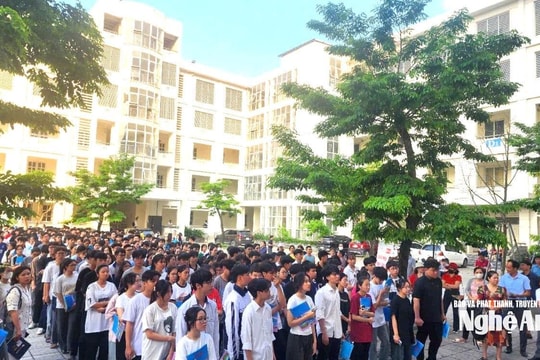
.jpg)
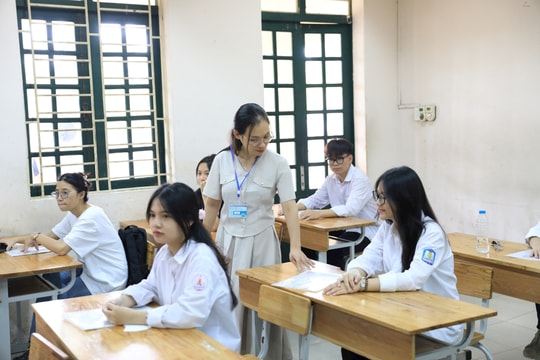
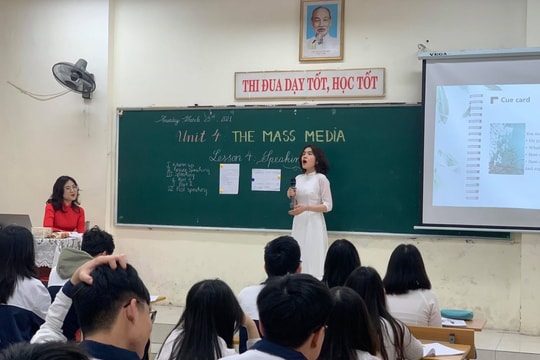
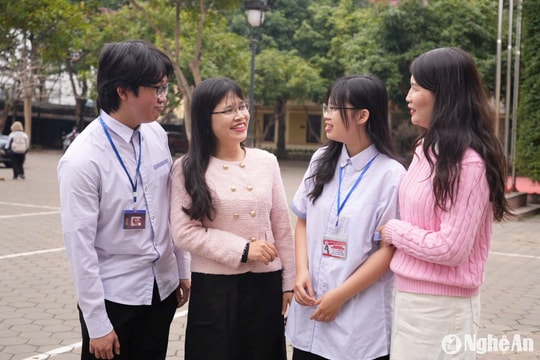
.jpg)
